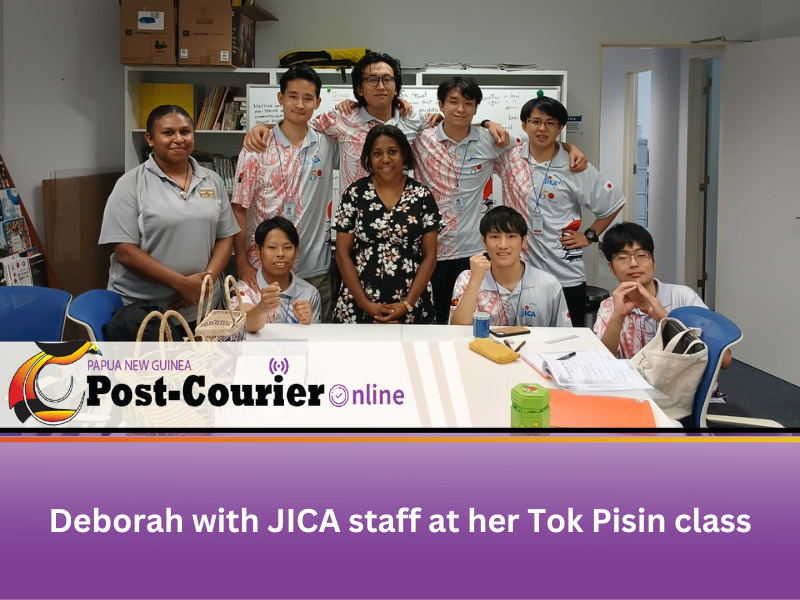By Doreen Philip
Copyright postcourier

Meet Deborah Salle, lead translator, interpreter, language tutor, and general manager of PNG Language Services.
Over eight years, Deborah has devoted her time and passion to learn and developing a Tok Pisin language curriculum, Tok Pisin translation and other exciting language lessons for the purpose of preserving language that she cares about.
Deborah Salle is 37 years old and she comes from the East Sepik province. Her dad is from Woginara village in the West Coast of East Sepik and her mother is from Palimbe village, a village along the Sepik River.
Her dad’s language is coastal Arapesh, and her mother’s language is Iatmul, Palimbe dialect. Languages fascinated Deborah when she was much younger.
She did not know that she would end up safeguarding local languages in PNG both as a job and as her passion. But one thing was for sure. She knew she had a commitment to pursue what God had placed in her heart as a gift and to use that talent.
Currently, language translation work is not a profitable business in PNG. In other parts of the world, yes.
“People talk about their dream job all the time. This is my dream job,’’ Deborah enthused.She still wants to contribute towards missions because her primary motivations were to get a linguistics degree, serve in missions and be useful to her local community.
With more knowledge and training, Deborah is determined to make an impact at the national level and influence language policies or laws to safeguard PNG’s language data, which is an intangible cultural resource, from international language software companies.
Also, to have a language conservation bill which ultimately will open job markets for youth to engage in the language services industry by surveying the state of their language, documenting the language, and others.
At the moment, she is working on a Tok Pisin language curriculum, Tok Pisin translation curriculum, Hiri Motu, Kuanua, Enga, and Iatmul language lessons, and a comparative linguistics project.
These curricula and other business practices will help her to design a standardized approach to effectively and strategically engage others if there is a demand for language tutoring and translation services.
Papua New Guinea is so linguistically diverse that people need cultural and language orientation, translation, interpretation, and language tutoring to support integration into different provinces, schools, campuses, and workplaces.
Self-development is currently the impact that she wants to make. As an example, Deborah wants to learn as much as she can about the languages that affect her day-to-day life and encourages others to do the same.
She again emphasized that language diversity in PNG should not only be celebrated on feast days but also reflected in our legislations, policies, and institutions.



